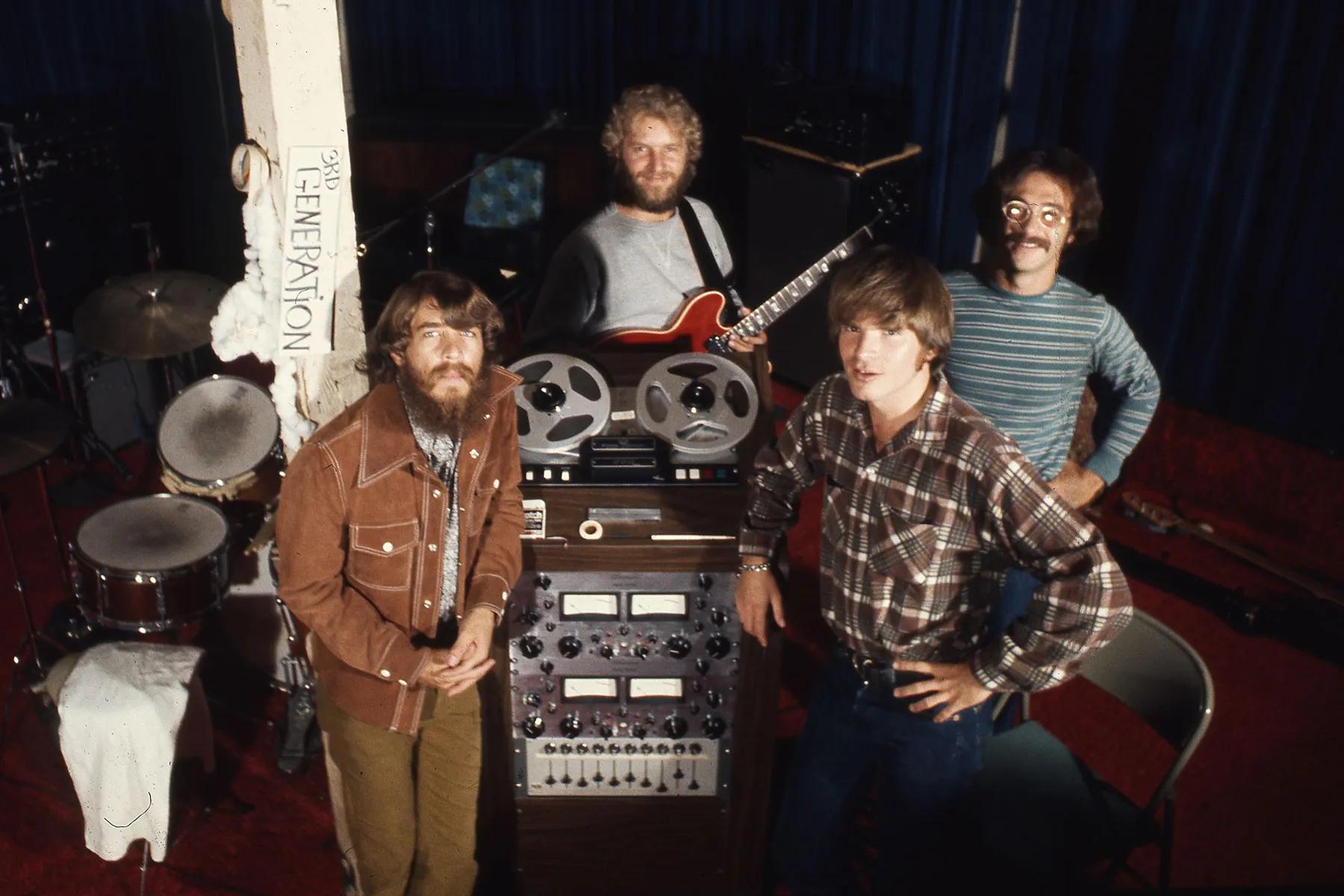
“Glory Be” is CCR’s little “missing prayer”—an unfinished instrumental that survived in silence for decades. It feels like a doorway left ajar, letting us hear the band’s engine humming before the masterpiece begins.
There are songs that arrive with fanfare, and then there are pieces like “Glory Be”—music that waited for its moment, sealed away like a note tucked inside an old record sleeve. Creedence Clearwater Revival recorded “Glory Be” in winter/spring 1969 during a test session at the newly built Wally Heider Studios in San Francisco, before the main recording stretch for Green River truly got rolling. The remarkable part is not that it was recorded—CCR worked fast, always moving forward—but that it was never finished, never placed on the original 1969 album, and then sat in the vault for nearly 40 years.
Its official “arrival,” the one listeners can actually point to on a calendar, came much later: September 30, 2008, when “Glory Be” surfaced as a bonus track on Green River (40th Anniversary Edition). The label’s own description is wonderfully plain and telling: bonus material included “another unfinished track called ‘Glory Be’”—a simple sentence that explains why the piece feels the way it does: like a sketch, a foundation, the underpainting beneath a famous canvas.
Because this isn’t a single with a chart debut of its own—“Glory Be” wasn’t marketed as a stand-alone hit. Its chart story is borrowed from the record whose shadow it lives under: Green River, CCR’s third album, released August 7, 1969 on Fantasy. That album’s arc is one of the great slow-build victories of late-’60s rock: it debuted at No. 127 on the Billboard album chart dated September 13, 1969, then climbed—week after week—until it reached No. 1 on October 4, 1969, holding the summit for four weeks.
Now, place “Glory Be” back into its true context: March 1969, a band stepping into Studio C at Wally Heider’s, testing the room, learning how it reacts when the drums crack and the bass rolls, when John Fogerty’s guitar slices the air. The album’s history notes that CCR cut three instrumental test tracks there—two of which, “Broken Spoke Shuffle” and “Glory Be,” later appeared on the 2008 remaster. Engineer Russ Gary even recalled a Creedence session “in about March 1969” at that studio, describing the distinctive sound of the space. So “Glory Be” becomes more than a leftover—it becomes an audio photograph of CCR finding the right room to become fully themselves.
And what does it mean, this unfinished thing with a title that sounds like a hymn?
The title “Glory Be” evokes church cadence—an upward glance, a hand over the heart. Yet the track is instrumental and described as unfinished, which gives it a fascinating tension: it gestures toward revelation but refuses to “preach.” You can hear it as the band’s private warm-up, yes—but you can also hear it as a kind of humility. It reminds us that even a machine as efficient as CCR had roads they didn’t travel, songs they didn’t complete, ideas they chose not to force into a final shape.
That’s the emotional power of hearing it now, decades later, on the anniversary edition. A bonus track can sometimes feel like trivia—something for collectors. But “Glory Be” feels like something else: an intimate glance behind the curtain. Not the polished CCR that would soon dominate the airwaves, but the working CCR—four players in a room, letting a groove form, listening for the moment when a sketch becomes a song worth releasing to the world.
In the end, “Glory Be” doesn’t compete with CCR’s classics—and it doesn’t need to. It offers a quieter kind of gift: the sound of possibility. The sound of Green River beginning long before the needle ever dropped in 1969. The sound of a band, already great, still searching—still testing the room—still letting the music speak before words arrive.